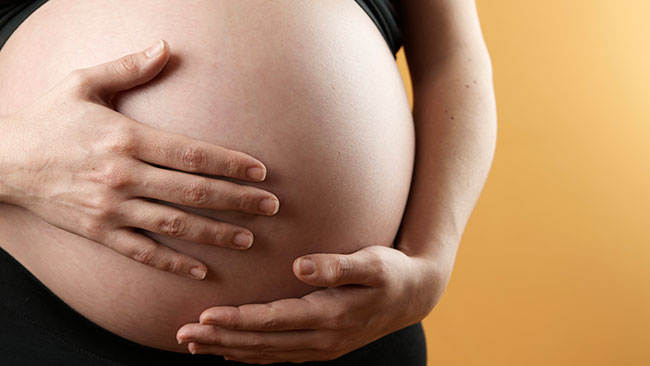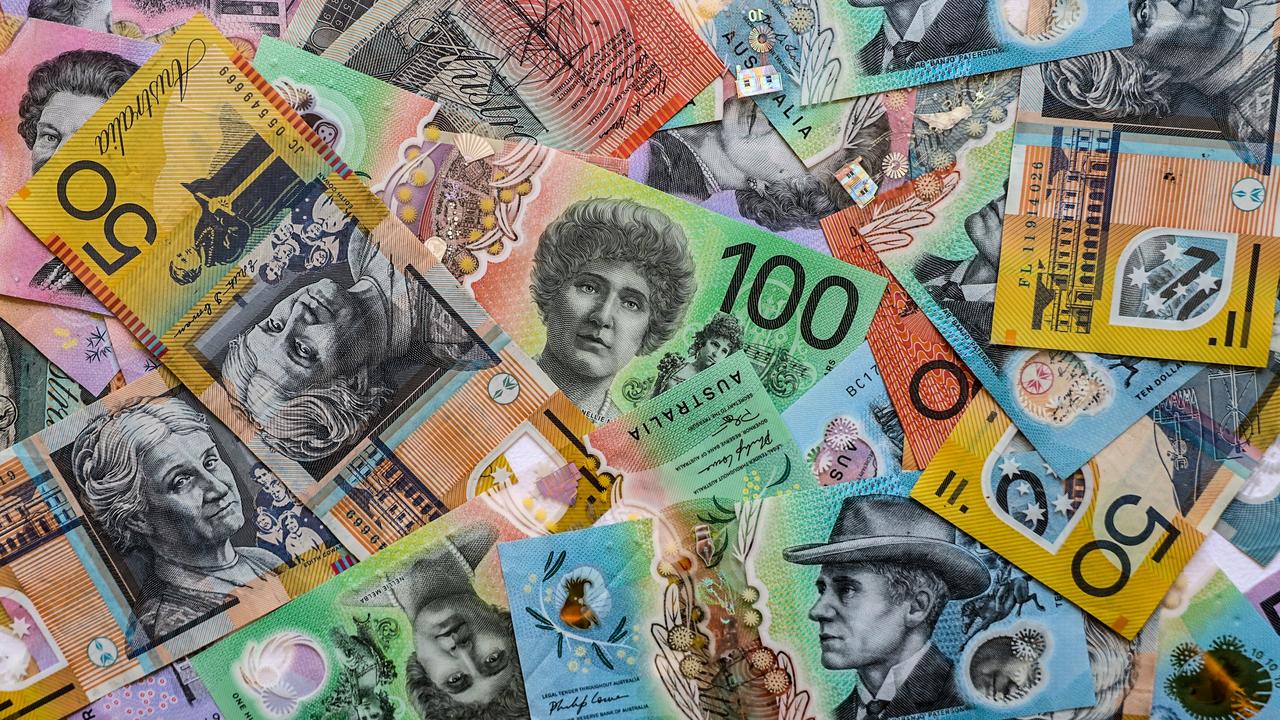Sore boobs, morning sickness and stretch marks - 35 changes to your body during pregnancy
A HUMOROUS look at 35 embarrassing things women experience during pregnancy, but prefer not to talk about!

A HUMOROUS look at 35 embarrassing things women experience during pregnancy, but prefer not to talk about!
Pregnancy – and becoming a mum – are such wonderful, life-changing experiences that the majority of women wouldn’t swap them for even the most glamorous of lifestyles. Which is just as well because, as miraculous and joyous as motherhood might be, there’s certainly nothing particularly glamorous about some of the body issues some of us experience along the way.
1 - Sore breasts/breast changes
Usually one of the first signs that you’re pregnant are larger, tender or painful breasts. This can range from noticeably more uncomfortable to: "Don’t even think about touching them!" Your breasts also tend to stay bigger
than their normal size, so start the search now for cute maternity bras that are bigger than your grannies.
2 - Seesawing emotions
Expecting a baby can be like pre-menstrual tension on steroids. As pregnancy hormones flood your system you may cry at pictures of missing cats stuck to the lamp-post and sob because you broke your favourite teacup. Don’t worry if you feel messy and irrational – you are.
3 - Morning sickness
Some women don’t get morning sickness (how unfair is that!) while others, despite using remedies, find themselves vomiting 24/7. Mostly though, you can expect to feel queasy at any time (a kind of 3-month hangover) until, for no apparent reason, it just stops.
4 - Varicose veins
These are bulging veins in your legs or vulva caused by the extra weight and pressure of pregnancy and certain hormones. They can ache and are pretty unattractive. Sitting with your legs up, support stockings, and advice from your GP can help.
5 - Skin conditions
Not all women glow during pregnancy; some get acne, rashes and marks or discolouration on their face, neck and breasts. If this happens to you, don’t panic – it will all get better after baby arrives.
6 - Fluid retention
Swollen ankles, fingers and face are all signs that your body is holding excess water. Worse when the weather is hot, avoiding salt (sodium), sugar and drinking lots of water helps. Always get it checked out by a health professional
7 - Increased urination leaking and incontinence
Sometimes it feels like baby is using your bladder as a trampoline. Don’t be shocked if you don’t quite get to the loo on time, especially in the last trimester – even if you are sprinting there 20 times an hour! You might not feel like it, but drink heaps and do those pelvic floor exercises!
8 - Constipation
Even if you have never been blocked before, having difficulty doing a poo is really common in pregnancy, especially if you are taking iron supplements. The secret is to increase your fruit, vegie, fibre and water intake till things get back to normal.
9 - Reflux/Indigestion
Heartburn and indigestion can be a real pain – literally. As baby gets bigger and your organs get squished up, you can feel pretty uncomfortable after eating. Smaller meals, more often, help. Check out some natural remedies like peppermint and chamomile, too.
10 - Cravings
Not just a cover for a major chocolate addiction, cravings are strange and unusual desires for food and even bizarre things like coal and sand. Scientists don’t know why pregnant women crave, but if it’s not bad for you, indulge a little – you deserve it.
11 - Stretch marks
These are red lines, usually on your belly, thighs and breasts, caused by your body expanding to an unfeasibly large size in a very short time. Some skin types are more prone. There’s no 100 per cent reliable way to prevent them, but creams and diet may help. They do fade a great deal over time.
12 - Changes to your sex life
Whether you feel more or less sexy (both are normal with pregnancy), you will have to modify your love life to make room for a big bump and a body that changes shape daily. Find what works for you and enjoy. It may be the last time you have uninterrupted sex until your child goes to high school.
13 - Image/self esteem
It’s hard to feel gorgeous and good about yourself when you are waddling down the street, twice your normal size, and have just had your salary slashed into tiny pieces as you go on maternity leave. Remember, you are growing a unique human being – it doesn’t get more special than that. If you hit crisis, get some counselling; someone to remind you of what a fabulous job you are doing.
14 - Contractions
These are the powerful waves you feel across your stomach, thighs, back and legs when your uterus is working to push out your baby. It’s called labour because it’s hard and it’s work! The intensity and frequency vary as labour progresses, but basically imagine your worst-ever period pain, then multiply it by a thousand and make it last 24 hours without a break. (Yes, it may hurt – a lot – but the end result is pretty spectacular.) Thankfully, there’s a range of pain relief choices available – everything from birthing pools to epidurals. Learn what your options are and write a birth plan – just remember to be fl exible on the day.
15 - Nausea and Vomiting
Throwing up during labour, especially in the transition phase, is quite common. Having some mints or ice to suck on and drinking small amounts of water or energy drinks can really help with the nausea and prevent dehydration.
16 - Shaking and shivers
This is a natural reaction to the amount of pain, trauma and shock your body is experiencing. Labour is one of the most intense physical challenges you will ever go through – not to mention the overwhelming emotions that are attached to the arrival of your child. So don’t be at all surprised if you feel very shaky. Warm blankets or a bath can help.
17 - Eposiotomy and tearing
The unkindest cut of all! At the end of labour, when your baby is being pushed out, you might sustain a tear to your vagina or perineum. Alternatively your midwife or obstetrician may cut the area with scissors (episiotomy) to prevent you tearing and to make the birth easier. Tell your midwife if you don’t want an episiotomy, and read up on exercises to stretch your perineum pre-labour.
18 - Losing control of bladder and bowel
Many women dread peeing or poo-ing in front of others by accident during labour, but it does happen. The pressure exerted on your bladder and rectum is, after all, very intense. The good news is that the medical staff are used to it – and you’ll be so busy that you probably won’t even notice.
19 - Soreness and stiches
If you feel like your bits have been hit by a truck, then you’ve probably just had a baby. Warm salt-baths, comfortable loose clothes and pain relief will make a big difference. It gets better – honest!
20 - Going to the toilet
It has to happen sometime – but it can be a bit of an ordeal when your perineum feels like it’s been rubbed
with sandpaper and your bottom is swollen and tender. Avoid constipation and drink lots of water to make it as easy as possible.
21 - Bleeding and lochia
After the birth, bleeding lasts on average between 4 and 6 weeks – but it can be longer or shorter. Heavy bleeding, clots or smelly discharge are all signs that you need to slow down and speak to your midwife or nurse.
22 - After-pains
These are painful contractions while breastfeeding and are caused by the hormone that makes the milk come down. This is stimulated by the baby sucking. More severe after second or subsequent births, they feel like mild contractions and can last a few days before settling.
23 - Flabby tummy
It’s a bit disappointing to find that after your baby has popped out you still have a huge belly! If you can’t get into your jeans on day two – welcome to the world of real women. It can take up to a year to lose the weight, so take it slowly and set realistic goals. Just eat well and exercise.
24 - Exhaustion
Feeling totally sleep-deprived can be one of the hardest parts of being a new mum or dad. You may wonder how you ever slept so much before. If you’re so tired you feel constantly emotional and down, ask for help.
25 - Engored breasts
As your milk comes in around the third day after the birth, you may wake to find your breasts hot, rock hard and
bigger than a Baywatch babe. Feeding, expressing, warm showers and cool cabbage leaves inside your bra (really!) will soothe and soften them.
26 - Leaking breasts
Milk-filled breasts can leak at night, or even during the day if your baby cries, they are late for a feed, or if your
breasts are particularly full. Express, use breast pads and become best friends with your washing machine.
27 - Three day blues
Around the third day after you’ve given birth, your body starts to dump the pregnancy hormones it’s accumulated and floods your system with breastfeeding hormones. The result: a very emotional new mum. Throw in some tiredness, physical discomfort and feeling overwhelmed at being responsible for a new human being and you can feel like your world is in meltdown. Lots of TLC and reassurance helps.
28 - Cracked nipples
A baby’s sucking can really rub sensitive nipples, leaving them blistered and cracked. There are many remedies including nipple guards and creams. Find what works for you.
29 - Mastitis
This is when milk ducts in the breast get blocked and then infected. It is usually a sign that you are doing too much and need to have a break. Symptoms include fever, a red area on your breast, very tender breasts and nipples. Treatment includes rest, drinking lots of fluids, continuing to breastfeed and, occasionally, antibiotics.
30 - Resuming sex
Excuse the pun, but there are no hard and fast rules when it comes to getting intimate after childbirth. Health professionals recommend waiting until around the six-week postnatal check to make sure everything is healed, but really it’s up to you. The tip is to take things slowly and gently and let desire lead the way. A couple of glasses of wine can help, too!
31 - Changes down there
All women’s bodies change after pregnancy and birth, some claim for the better. If you feel there are some negative side effects from the experience, such as painful scars, haemorrhoids or uncomfortable sex, be sure to see your doctor.
32 - Pelvic floor exercises
These help your vaginal muscles get back into shape and can help prevent urinary incontinence, a common after-effect of labour. Ask your midwife for instructions and learn how to squeeze the tone back into your pelvic area.
33 - Periods returning
This can be a bit of a surprise after nearly a year without one. Normally women start to menstruate between 3–6 months after their baby is born, but this can be longer if you breastfeed. Remember you can get pregnant even if your periods have not come back yet, so check out your contraceptive options.
34 - Adjusting to the demands of motherhood
Even if you ran a multinational company or were the head of a small country, becoming a mother can be a big shock. So if you still find yourself in your PJ’s and not having had a shower or breakfast at 5pm, just know that you are not alone. Motherhood is a lifelong learning curve and it’s going take a few months to get the basics under your belt. Relax, let go and enjoy the time with your newborn. You will get on top of the laundry one day.
35 - Let's do it again
It’s a daunting list. Funny how so many women decide to do it all again… and again… sometimes several more
times! Which just goes to show that despite all those pesky side-effects, the experience of motherhood is worth more than anything else in the world. And that’s no secret!



